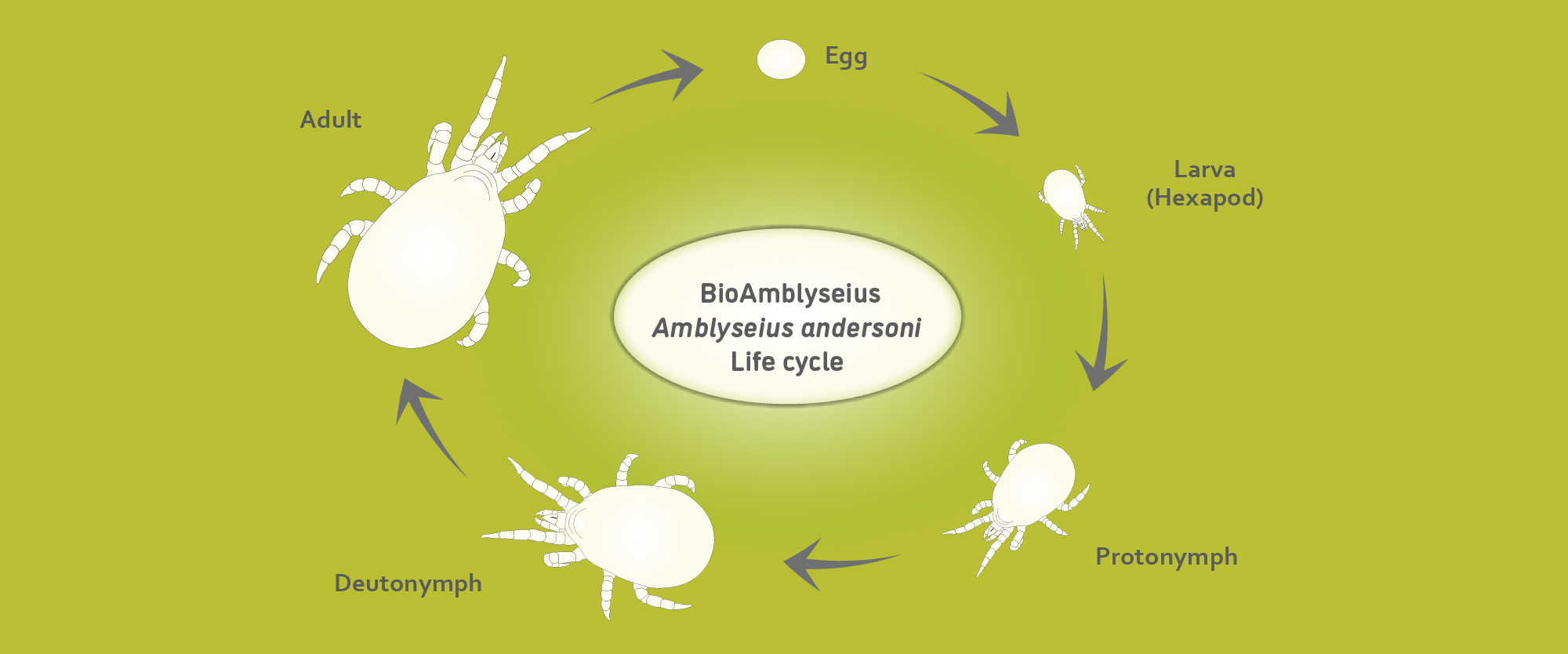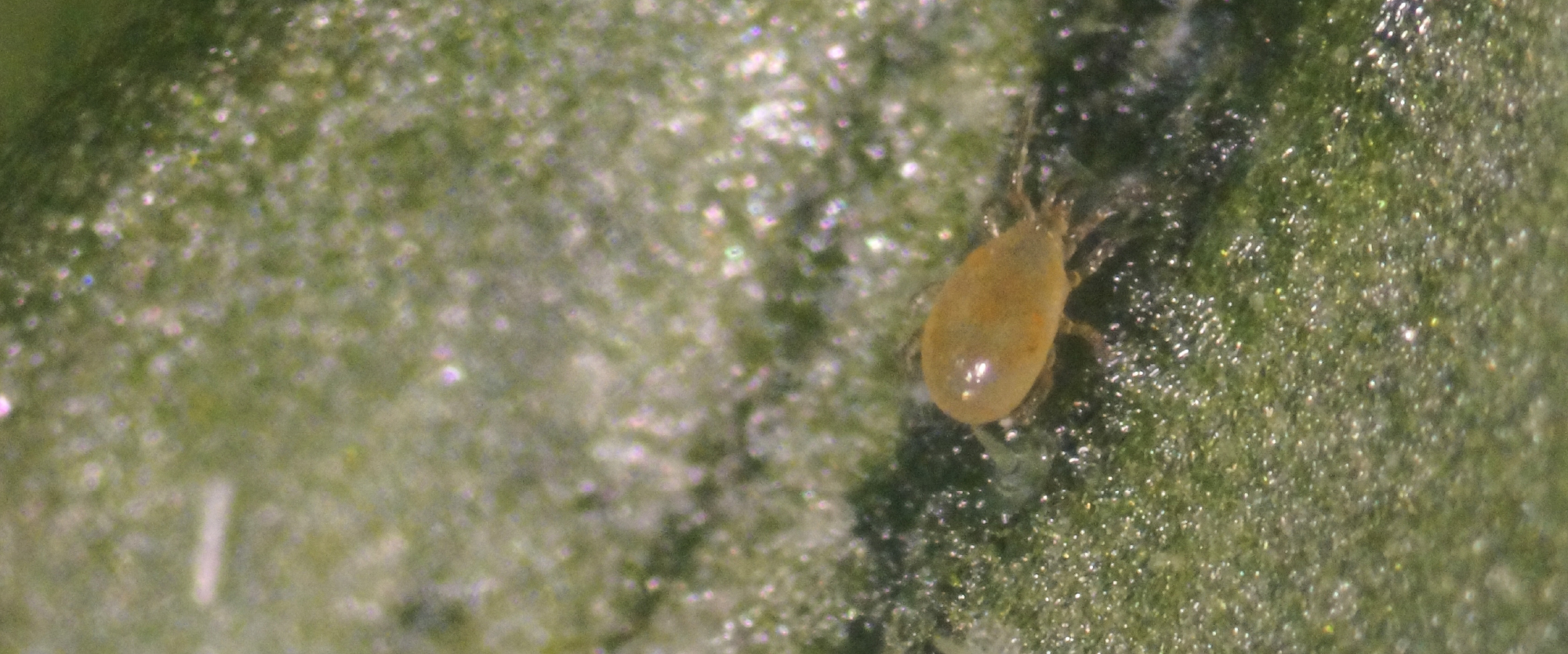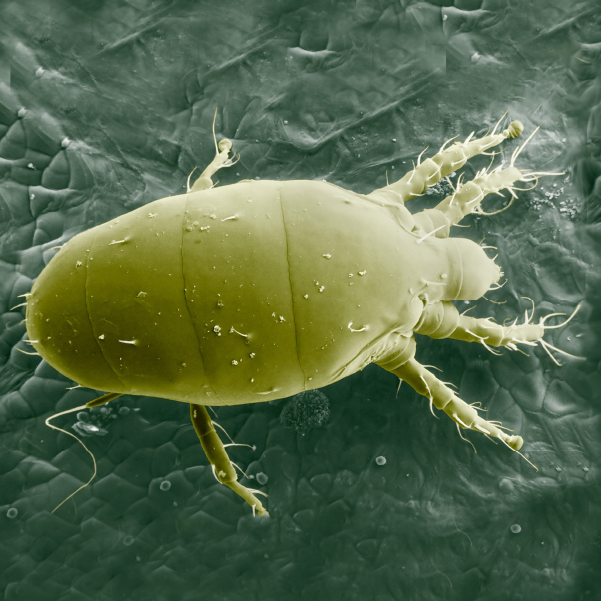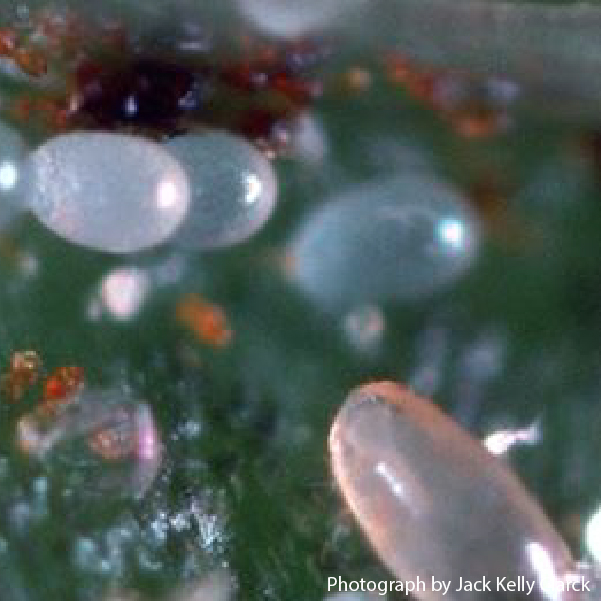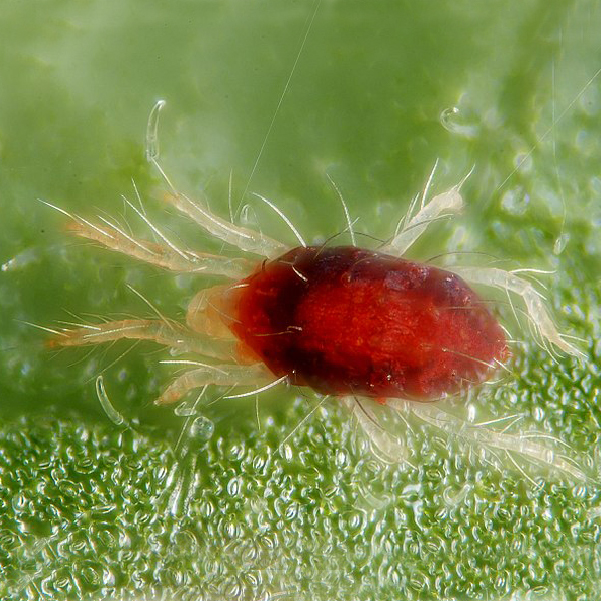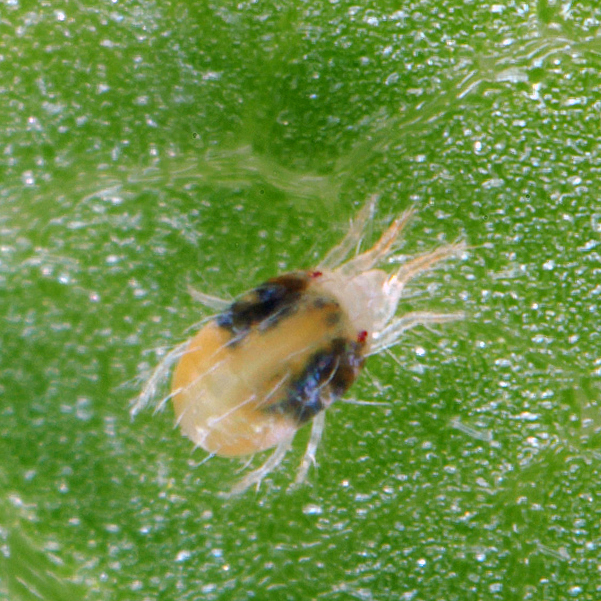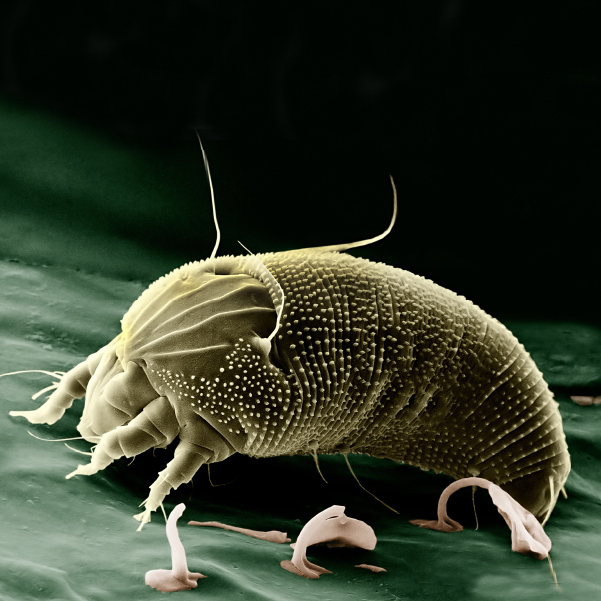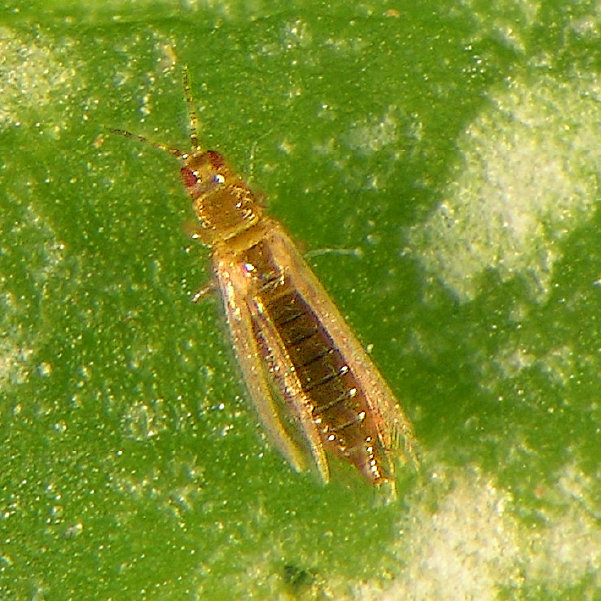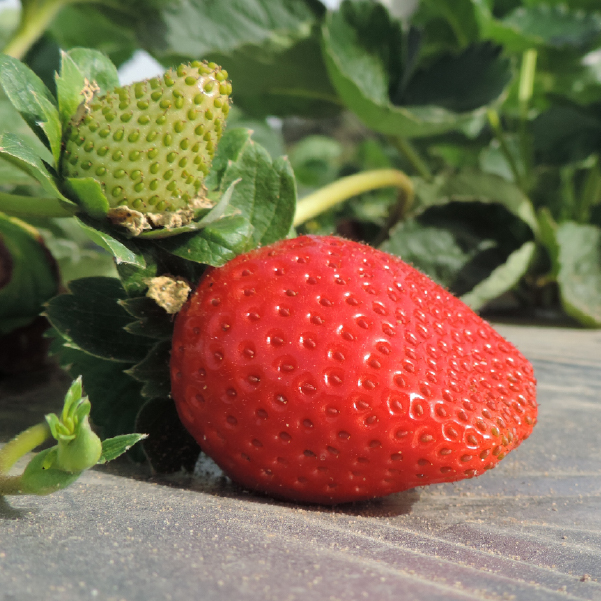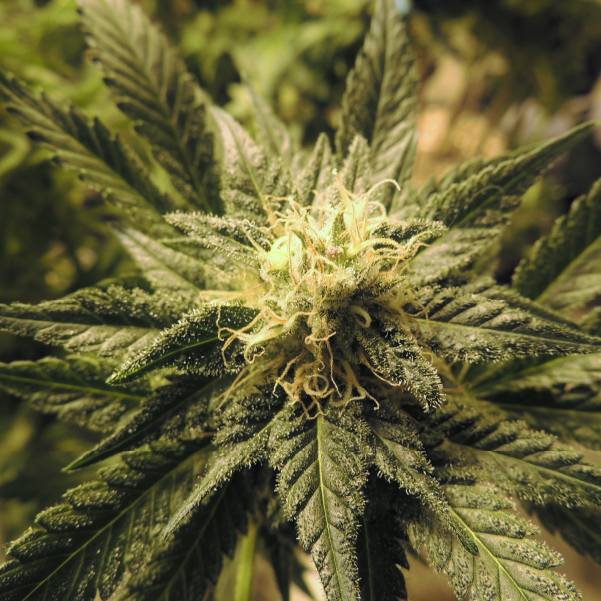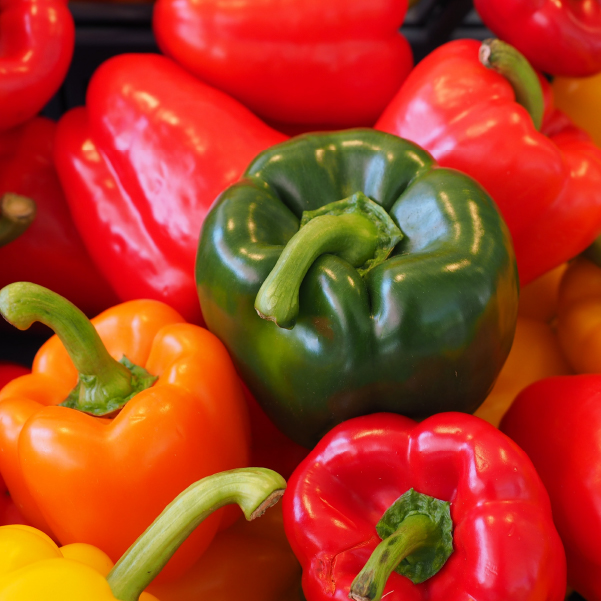BioAndersoni (Amblyseius andersoni) is a predatory mite that feeds on small arthropod prey and pollen. BioAndersoni is less than 1mm in length and is often used in tomatoes due to its ability to maneuver between trichomes. They are active across a wide temperature range, allowing for early season introduction into crops yet might enter diapause with cooler temperatures and short day lengths (<10 hr.).
Since A. andersoni is able to feed on pollen, it can be applied before the pests’ arrival.
Consult with your local BioBee representative.
Target Pests
Product
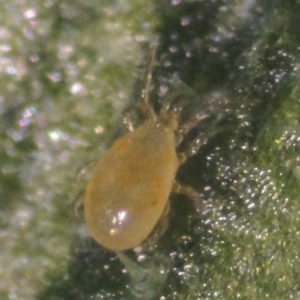
BioAndersoni is packaged in a bottle containing 50,000 predatory mites.
Also available in bags containing 125,000 predatory mites
BioAndersoni Sachets are available in boxes with 250 sachets (62,500 predatory mites).
Dosage can vary depending on the crop and the level of infestation.
Application
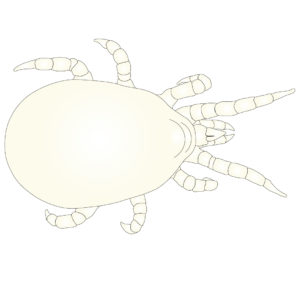
Bottle application
- BioAndersoni is shipped in insulated, chilled boxes. Packaging must be kept intact until placed in the field.
- Keep in a cool location 16°C until release.
- The predatory mites should be released within 24 hours of receipt.
- Remove the product containers from the box, one at a time.
- Before use turn, roll the bottle back and forth gently, to mix BioAndersoni with the vermiculite.
- The predators are released by sprinkling the contents of the bottle on the leaves of the host plants, preferably in a shady area.
- Do not expose the bottles to direct sunlight.
Sachet application
- Hang directly into a well-formed axillary meristem at medium height or where flowering is present.
Before combining BioAndersoni with any chemical pesticide in the crop, please consult your BioBee technical field representative.
Crops
Storage
-
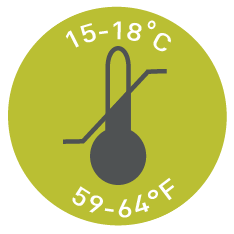
Storage temperature
-

Do not store in sunlight
-
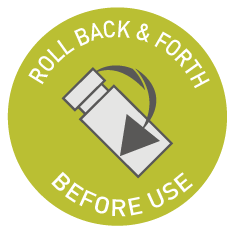
Roll back and forth before use
-

Store horizontally
Disclaimer
BioBee Sde Eliyahu Ltd. produces and markets biological products. Production is carried out using innovative techniques under controlled quality assurance standards such as ISO 9001:2015, as well as IOBC’s international standards for mass-production of insects. All products are tested to meet specification requirements before leaving the factory.
The success of biological pest control is affected by the crop’s initial pest population (upon application of the product), weather conditions and chemical residue present in the crop, among other possible aggravating factors.
Under no circumstance shall BioBee be liable for the outcome of the implementation in the field, as it has no control over local conditions, the application method, or the possible improper treatment/storage of the product.
